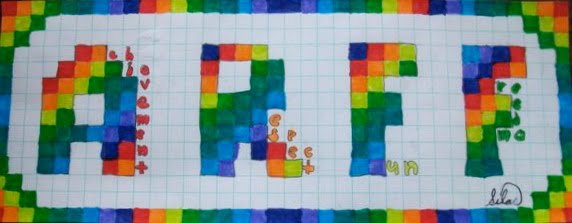
I love teaching because it the perfect blend of Art and Science. You might, for example, use data to discover the learning needs of your students, and then use your creativity and passion to design an artful learning opportunity. Sometimes it's a neat and tidy process; Sometimes it's terribly messy. It is sheer delight when those messy, " go with your gut" moments result in quality time with students.
Yesterday was exactly that for me. I helped chaperone a middle school field trip, which put me in a tippy canoe with three seventh grade girls and a $900.00 GPS thingy, in the middle of a lake, with no idea of what I was supposed to do.
It was a well-planned trip, with lofty educational goals, but as often happens, things didn't go as planned. There was a seriously damaged canoe, fewer life jackets than expected, one less chaperone, two fewer students, and pouring down RAIN.
But in the middle of all the chaos and scrambling to pull off the field trip in spite of numerous set-backs, I witnessed teaching and learning that had me laughing my guts out one minute and a liitle choked up the next.
I knew our intent was to map the bottom of the lake but that was the extent of my expertise. I was no help to the girls trying to work the GPS thingy (ok. It has a name, JUNO). So as I was doing my best to keep our canoe steady ( leaning this way, as they leaned that way) they worked together to figure out the JUNO. They passed it back and forth, trying to determined who had the most skill with it. They asked each other questions. They tried to remember their practice session from the day before. They eventually got help from a high school mentor in another boat and were able to map the section of the lake assigned to them.
It was hard work. One girl sat on the cold canoe bottom reading the JUNO and directing us to each point to be measured, another helped me paddle as we tried to follow JUNO girl's directions, and another had to drop the anchor, measure, and pull it back out of the water at each point. I admired their perseverance and good humor. It was cold and wet and they were afraid of being so far from shore In an unsteady boat, but they pulled together as a team, each taking on a difficult job that they didn't want to do so that they could succeed.
It was a quality time. They learned really good science. They used the very latest technology. They asked high level questions. They did the work of scientists. And I got to be there. It was cold and wet and rainy but I am thankful I had a chance to witness such high level teaching and learning.











